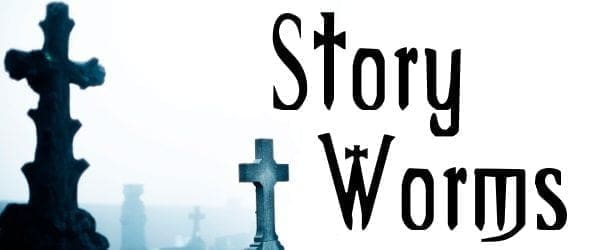Story Worms: You Can’t Kill Zombies

For as long as I can remember, I’ve been obsessed with horror. The macabre. The spooky. My teens were spent working through the horror classics with my brother, and completely obsessing over The X-Files.
But there is one monster that I just keep coming back to. The zombie.
I often hear it claimed that the zombie genre is dead, no pun intended. That everything that can be done with it, has been done with it. That the only option left is to keep rolling out the tired, old tropes we’ve all seen before.
Now, for one thing, people love tropes. Tropes are too often confused with cliches, but these are two very distinct things, although there is crossover, and tropes can end up becoming cliches. Think of tropes as route markers, as milestones. They are clues and hints, given to your readers, to let them know that they are reading a book of a particular genre. A genre they love. They are simply clues to your reader to read on, because you promise they’ll enjoy it.
We are, by nature, creatures of habit. We like the familiar. The familiar is safe. And so, we love our genre tropes. The elderly mentor or the chosen one in fantasy, the corrupt government and intrusive surveillance in dystopias, the one person who managed to sleep through the whole apocalypse. We love them, we seek them out, and we enjoy the familiarity.
But, on the other side of that coin, we like to be unsettled too. Especially us horror fans. We like to see something safe and familiar turn around and become something terrifying. The psychotic child, the family pet turned monster, the harmless doll possessed. We do enjoy things being turned on their heads.
And, on that point, every time I hear anyone claim the zombie genre as being finished, someone releases a book, movie, or TV show that pulls something totally fresh out of the bag. Sure, there’s a lot of dross coming out of that bag too, but there are also absolutely stunning gems being revealed.
The thing about zombies, and the reason they’ve endured so well (other than the fact that so many people caught in zombie apocalypses seem to have never watched a zombie movie before, and have no idea of how to exterminate them), the reason they have endured is that they are so familiar. Scarily so. And dangerously so.
Zombies are not only humanoid, but they used to be human. Sometimes, they even retain human qualities. Sometimes, they’re barely distinguishable from humans at all. And, so often, they are people we have known, and loved. They’re our neighbours, our friends, our families. Hence the trope of the person bitten, and those around them being unable to kill them, until it’s too late.
Zombies also represent something else to us. They represent our deepest fears.
A zombie represents the part of ourselves that we have attempted to distance ourselves from. They are a reminder that, deep down, we’re nothing more than animals. Animals with base instincts: to feed, and to breed. We like to think of ourselves as better than that, that we’ve evolved beyond our animal ancestry. We don’t want to be reminded of what we truly are at heart.
And a zombie is, quite literally, an embodiment of our own mortality. Facing a zombie is looking death square in the face. And we don’t really like that. We can see what will become of us. How we will rot. Zombies remind us that we cannot live forever.
And until we stop fearing our deaths, or denying the animals that reside deep inside us, zombies will continue to fascinate, enthrall, disgust, and terrify. As long as we remain human, zombies will be everything we fear. Everything we fear about ourselves; what we were, and what we will become.
- About the Author
- Latest Posts
Angeline Trevena is a British author of dystopian urban fantasy and post-apocalyptic fiction. She has an impressive backlist of novels, a series of worldbuilding guides for authors, and short stories appearing in various anthologies and magazines. Despite the brutal and dark nature of her fiction, Angeline is scared of just about everything, and still can’t sleep in a fully dark room. She goes weak at the sight of blood, can’t share a room with a spider, but does have a streak of evil in her somewhere. Find out more at www.angelinetrevena.co.uk












